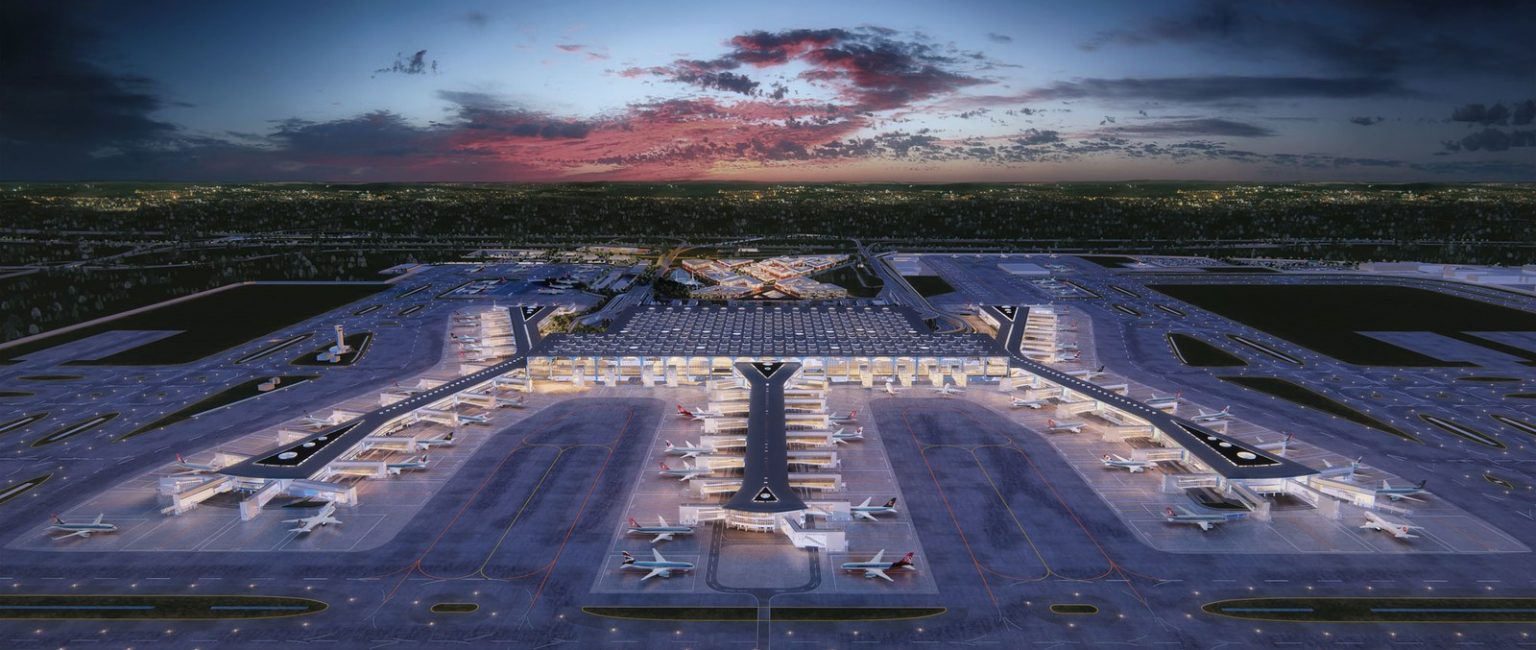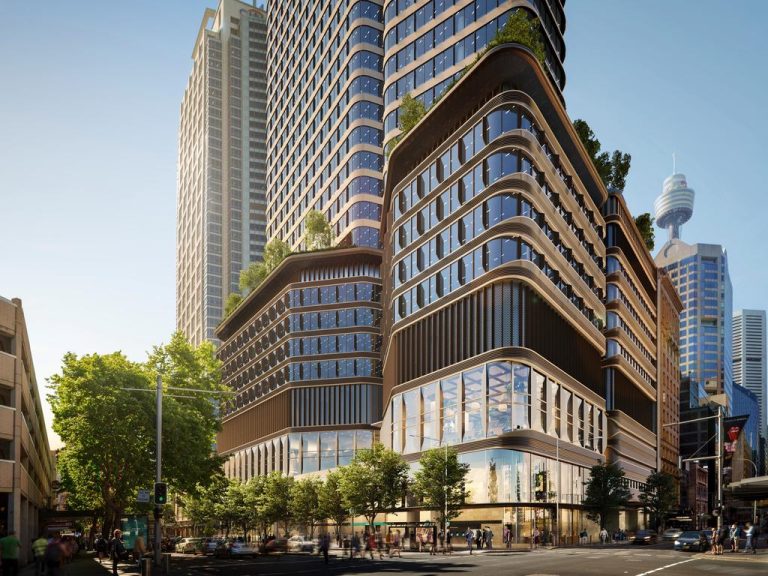Airport larger than the size of Manhattan opens in Turkey

Turkey’s President Recep Tayyip Erdogan opened the world’s largest airport on Monday, amid pleas from human rights groups to release dozens of labour leaders and activists who were arrested last month for protesting against rough working conditions.
Described by Erdogan as a “monument to victory” and gift to the world, the 76.5 million square-metre ‘Istanbul New Airport’ is expected to serve 90 million passengers a year during its first phase, and 200 million upon the airport’s completion in ten years.
To begin with, the airport will run flights to local destinations Ankara, Antalya and Izmir, as well as Baku and Ercan in northern Cyprus. But at the end of the year, when it will replace Istanbul’s main, soon-to-be-closed Ataturk International Airport, it will connect passengers to 350 destinations via 250 carriers.
“With this airport we aim to bring the world closer together with a major hub at the intersection of Asia, Europe and the Middle East,” the airport’s CEO Huseyin Kadri Samsunlu told reporters on Thursday. “Our challenge is to be the biggest and the best.”

The opening ceremony of Istanbul New Airport on October 29, 2018. The design of the airport was inspired by the city’s historical buildings. Picture: Getty
The airport, which boasts a 53,000 square-metre duty free complex, 22,000-camera surveillance system and 42 kilometre baggage handling system, was designed by Grimshaw Global.
The London-based firm described the project on its website as “a highly efficient airport that captures the rich cultural influences of the historic city”.
“The design draws on the architectural character of Istanbul – a city rich with colour, pattern and history since its Byzantine origins – and includes vaulted ceilings pierced with skylights that draw in diffuse daylight and create an open, lofty volume with clear lines of sight,” the company’s online project description reads.
The transit hall was shaped like the Bosphorus Strait, and the control tower, like Turkey’s national flower, the tulip – a design that won the 2016 International Architecture Award.

The airport’s tulip-inspired air traffic control tower won the 2016 International Architecture Award. Picture: IGA
The project also incorporated into the design 22 LEED-certified airport buildings that will consume 21 percent less energy and 40 percent less water; although the airport’s environmental credentials have been somewhat compromised by the destruction of forests, wetlands and coastal sand dunes that environmental group Northern Forests Defense says incurred during construction.
And environmental devastation is far from the only significant loss to tarnish Erdogan’s self-proclaimed “monument to victory”.
According to labour activists, workers have been poorly paid, crammed into small dormitories and made to endure prison-like working conditions that have claimed the lives of 38 workers since construction began. (Airport officials say 30 workers have died during the airport’s 42-month construction.) Protests against the conditions resulted in dozens of arrests.
“Behind the glass and steel of President Erdogan’s newest mega-project, 30 construction workers and a union leader are sitting in jail for protesting poor working conditions,” Emma Sinclair-Webb, Human Rights Watch’s Turkey director, said in a recent statement. “The jailed workers should be freed, the criminal investigations against them and many others dropped, and workers unfairly fired for protesting should get their jobs back.”
Samsunlu told reporters on Thursday that he had listened to the concerns of workers, and that the airport’s management was “fixing the problems they raised”.







